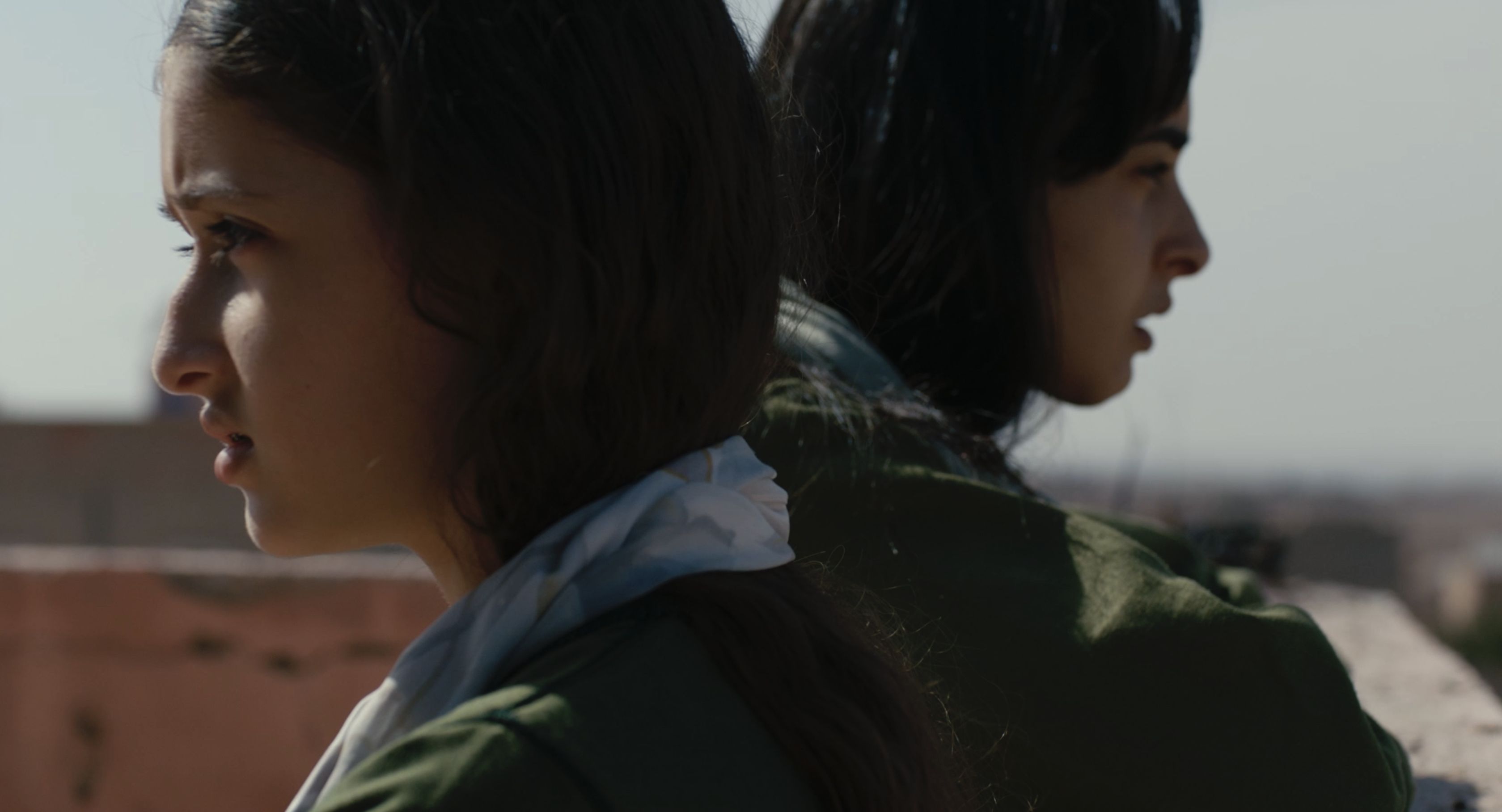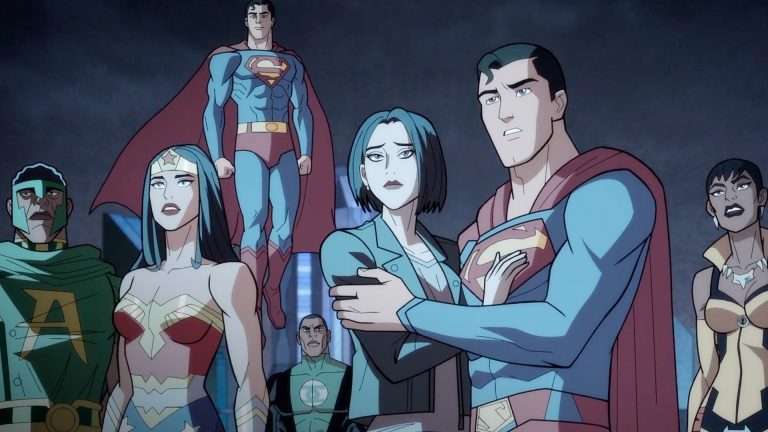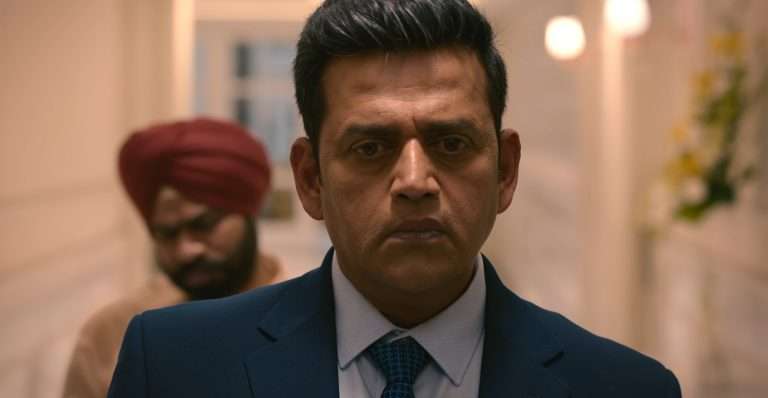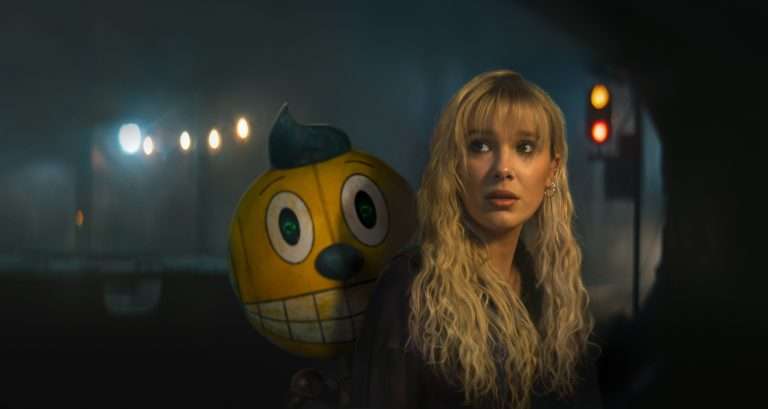Author: Irinka Shavladze
Cars navigate a narrow road between the mountains. In one of them lies the body of a dead man, while the other is trailed by his wife and children. A young girl named Maïne travels to a Moroccan village with her relatives to bury her father the next day. The French-Moroccan short film “On My Father’s Grave” was screened at the Kutaisi International Short Film Festival. In the movie, Director Jawahine Zentar masterfully brings together elements of rebellion, tradition, and the pursuit of gender parity, creating a captivating narrative.
She employs a highly minimalist aesthetic characterized by expansive, panoramic landscapes reminiscent of Abbas Kiarostami’s signature style. Zentar crafts a compelling portrayal of Maïne, skillfully led by Yasmine Kéfil in a standout performance through less dialogue and restrained expressiveness. This short film invites viewers to understand the long-standing customs we follow, encouraging us to think about the effort needed to make society better. We witness a graceful exploration of modern societal norms and the quest for gender equality.
Maïne’s character exudes strength from the moment she graces the screen. She refuses to be confined by the rules and conventions that govern her mother, her elder sister, and the other women around her. According to the village traditions, which were born in a patriarchal world, women are excluded from the funeral ceremony; they remain at home, awaiting the return of fasting men who pay their respects. However, this spirited young girl, full of protest, chooses to break free. She does not want to sit and wait at home. Throughout the film, Maïne often runs, and this act is not running away from something but running straight towards something.

In one particular scene, Maïne pretends to be a man to be close to her father’s coffin. However, she meets resistance, and her mother intervenes, urging her to return home, but the young girl’s straight and clear answer is “no.” She is accused of disrespecting and embarrassing the family. The girl does not adapt to this injustice, the physical expression of anger is revealed in the haircut scene, and she is willing to metamorphose into someone else, as if Maïne is trying to deny her identity. The girl’s emotions accumulate in the act of cutting her hair.
The film also interestingly explores the aspect of toxic masculinity. A frightened little boy, Maïne ‘s younger brother, is forced by society to be an accomplice in all the difficult processes connected with the death of a beloved person. Society remains oblivious to the profound trauma they inflict upon the boy, compelling him to attend the burial ceremony while barring the girl from doing so. It seems like in a patriarchal system, tragedy also has a gender. There are societal expectations for both genders on how they should cope with loss, and it is very unsettling to realize that even in the process of mourning, there exists a distinction between men and women.
Three women—a mother and two daughters—stand on a hill, gazing out over the land that their cherished man held dear. Towards the film’s conclusion, it seems as though Maïne has come to an uneasy truce with the patriarchal order, but she surprises us one last time by clutching sand, the essence of Morocco, in her hand as she runs to bid her father farewell. She is chased by her older sister, who asks Maïne to slow down, to which she replies, “I’ll slow down if you speed up!” In the closing moments of the film, Maïne’s actions speak volumes. She fearlessly defies convention by entering the cemetery filled with men.
The powerful music adds an extra layer to Maïne’s journey, drawing viewers deeper into her emotional transformation and heightening the film’s impact. Maïne emerges as a symbol of defiance against the entrenched patriarchal system and its traditions. She represents the younger generation’s quest for fairness. In every stride, Maïne asserts her autonomy, refusing to be relegated to the sidelines. She’s an example of a woman who sticks to her goals regardless of what society expects.



![In Conversation with director Sol KIM & Lee JIHYOUNG of Scattered Night [2019]](https://79468c92.delivery.rocketcdn.me/wp-content/uploads/2019/06/KIM-Sol-LEE-Jihyoung-768x387.jpg)


![Kavaludaari [2019] Review – A layered Murder Mystery from the writer of Andhadhun](https://79468c92.delivery.rocketcdn.me/wp-content/uploads/2019/05/Kavaludaari-2019-High-On-Films-768x430.jpeg)